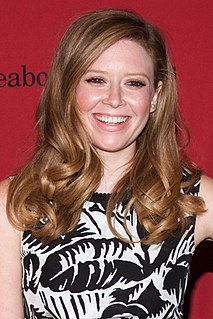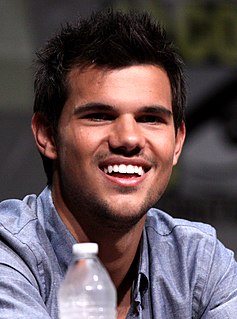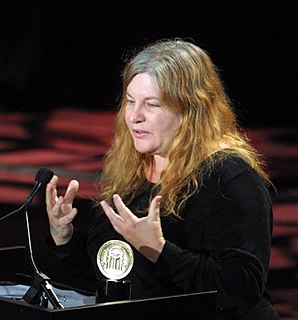A Quote by Joan Tewkesbury
The thing that's interesting about storytelling is people will say, "How do I write a movie I can get sold in this category?" For God's sake, the first movie that you can get made will be your personal story, because nobody's heard it before.
Related Quotes
That story about the two women in my life is - a lot of people get upset, a lot of people question it. Steven Soderbergh said to me, "The story of your life is incredible. The real story of your life that's interesting, more interesting than all the other stuff - the franchises, the movies, the songs, Elvis Presley, Frank Sinatra - the real thing that's interesting and unbelievable is the relationship with these two women. And if you're willing to put that out there, you know then, you're going to have a great movie. Because that's the movie."
You write a spec, and you pour your heart and soul and life into a spec, and you think that spec is the movie that's going to sell and get made... I've never heard of anybody that happened to. What happens is, you write a spec, people get it, they see your writing, they see you're good, they bring you into their office and they say, "Boy, that spec was really good - we'll never make that in a million years. We have rights to the board game of Monopoly. What do you think about a Monopoly movie?".
The trick of this thing and the beauty of this thing is that it's a cowboy movie first and then stuff happens. Even after stuff happens it doesn't change - it hasn't suddenly changed into another kind of movie. It's still a cowboy movie. And that's what's incredible about it because nobody has done that before, that's new territory.
I think Memento movie was hard because people didn't get it, they just didn't understand it. Not from the stage when we read the script and liked it. It's sort of a famous story now how we finished the movie and showed it to distributors and nobody wanted it. So it wasn't just they didn't get the script, they really didn't even understand the movie when it was done. But I think that was a particularly hard one. I don't think it was harder because we were girls, but I do think obviously there are particular challenges to working in a male-dominated industry.
When you screen it the first couple times, you're just trying to get the movie to work, trying to get the story to flow, trying to find out where your areas are where you have enough breath to laugh a little bit. So you're doing that the first two or three screenings, and then finally, you dial the movie in and it's working, and at that point, it's 50/50 as far as what's funny and what's working. Sometimes you'll put something in and it will just die so hard that it'll almost kill the movie.
If you watched a movie about a guy who wanted a Volvo and worked for years to get it, you wouldn’t cry at the end when he drove off the lot, testing the windshield wipers. You wouldn’t tell your friends you saw a beautiful movie or go home and put a record on to think about the story you’d seen. The truth is, you wouldn’t remember that movie a week later, except you’d feel robbed and want your money back. Nobody cries at the end of a movie about a guy who wants a Volvo.
Honestly, I try and stay away from what's been written about me, because if you let that stuff get to you and it's not true it can drive you crazy. One thing that I have heard recently which is not true, I didn't say it, is that I believe I was quote saying 'I will never take my shirt off for a movie again.' I didn't say that.
Songs are like movies to me, and so you put yourself in the movie. You become a character in the movie. The new ones are exciting because they're fresh. But if it's not that, if the story is not what you get into, maybe it's the crowd response. You hit the first chords of 'She's In Love With The Boy' and 20,000 people start to scream, you're pretty motivated. You get what you need. And it's a great story. It works.
For people who are coming out of an oral tradition, it is very exciting to get into reading and writing and it is quite interesting how frequently people want to write their own story. Sometimes it is straight history - this is how we came about, how our town was created, a lot of that kind of effort, as soon as literacy came. The first thing you wanted to do was to put something down about who you are or how you are related to you neighbors. Then the next stage would be the stories, the cultural part of the story: this is the kind of world our ancestors made or aspired to.

































